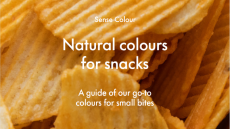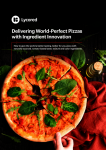European Muslims are hungry for more Halal, expert
certification expert from Singapore, while Southeast Asia and the
Middle East are eyed by certified Western companies keen on
exports.
Dewi Hartaty Suratty, head of the Halal Certification Strategic Unit at Majlis Ungara Islam Singapura (MUIS) spoke at a symposium in Grasse, France, organised by SAFC. SAFC this week announced the Halal certification of 350 of its flavours, granted by MUIS, to coincide with the symposium. Suratty said that the global Halal food market is worth more than US$560bn. On average, one in four of the world's estimated 900m to 1.3bn Muslims eat Halal food, meaning there is a massive market for food companies and the ingredients companies that supply them. She said that there are some conferences and lobbying efforts to raise the profile of Halal in Europe, but that at present the growing demand is not being met. However she spoke mostly about the two strongest markets for Halal food, Southeast Asia, which has more than 250m Halal Muslims, and the Middle East, a Muslim-majority region. By ensuring that food products and ingredients are suitable for Halal consumers, Western food companies can build their export sales in these high-potential markets. Moreover, they can also generate sales from a new source closer to home - European-based Muslims. Last year Nordin Abdullah, executive director of Malaysian Kasehdia, the company behind the World Halal Forum, said that although there are only 30m Muslims in Europe but they have far higher consumer spending power than those in the Middle East and North Africa. In particular, second and third generation Muslims want to be able to eat Halal-certified versions of the foods as their non-Halal peers, like pizzas and hot dogs. However there are some barriers to Halal certification as a platform for global expansion - most notably that there is no one global Halal standard. The general requirements for Halal, or 'permitted', food are that it does not contain ingredients or derivatives from non-Halal sources; it is made with equipment that is free from non-Halal contamination; it is fully segregated from non-Halal items; and that there is full compliance with hygiene and sanitation requirements. But there are some point on which Muslims around the world differ. For instance, there are different degrees of acceptance over seafood. In the 1990s there was a movement towards developing a universal Halal standard spearheaded by the ASEAN organisation, but this did not materialise because of different religious standards around the world. Instead, a set of ASEAN guidelines were drawn up, and endorsement for food products or services is bestowed by third party organisation, usually an Islamic body. As a basis, all foods are permitted for consumption by Muslims, except the following categories and any products derived from or contaminated with them: carrion; flowing or congealed blood; swine and swine by-products; animals not slaughtered in an Islamic way; intoxicants; carnivorous animals with fangs; birds of prey with sharp claws; and land animals like frogs and snakes. When it comes to Halal food ingredients Suratty set out some key points for consideration. In general, she said that if an ingredient comes with no Halal certification, it can be helpful to study the specifications. If it is of plant origin it is generally Halal (unless the plant is poisonous); if it is from microbial origin, it is generally Halal, depending on the media used; and if it is of animal origin, it depends on the type of animal and the slaughtering procedures used. Emulsifiers are generally considered Syubhah or 'suspect' unless they are Halal-certified or from plant sources; and glycerine is Syubhah unless from palm or other vegetable oils. Enzymes are classified as Syubhah unless they are Halal-certified or from microbial, rather than animal origin. While alcohol may not be added to Halal food during cooking, synthetic ethanol is allowed in Halal flavour production as long as it is less than 0.5 per cent.




















